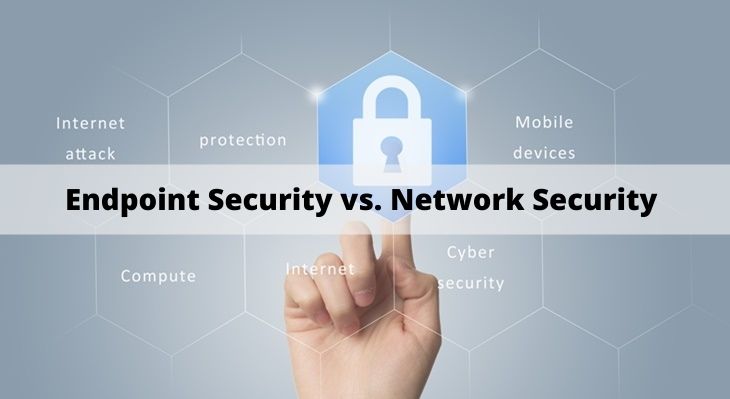All of an organization’s processes are carried out using technological devices, and we all know that these devices are the gateway to cyberattacks.
These attacks can cause losses for your company in addition to damaging the organization’s image.
In this article, we will cover the fundamental concepts of endpoint and network security. Additionally, we’ll clarify the main difference between the two security measures.
Comparison of Endpoint Security and Network Security
Endpoint security is an approach that deals with the protection of a corporate network, with monitoring status, software, and activities.
In this case, the endpoint would be the device connected to the network, such as a notebook, tablet, smartphone, computer, or even other types of IoT devices.
The main differentiator of an endpoint security system is proactivity.
The feature once installed and configured on the server and on all devices, searches for vulnerabilities and corrects flaws before an attack is even carried out.
A company that does not have a security policy is at the mercy of digital threats that not only put strategic business information at risk but can impact the company’s operation.
Investing in an endpoint security solution is a way for the company to protect its information at different levels, in cycles of continuous improvement, following the new technologies.
Network security consists of a series of measures that aim to ensure that access to data shared by the company is made only by those who have authorization.
The measures also serve to ensure that only the network administrator has control over it, preventing others from making changes that compromise the system.
It combines multiple layers of defense to protect the usability and integrity of your connections and data.
Now when businesses increasingly rely on the internet and computer networks, companies can face major challenges such as threats of errors, hacker invasions and virus infections. That’s why it’s so important to protect your network.
By increasing the security of networks, you decrease the chance of identity theft, forgeries, and leaks. And if piracy is another one of your concerns, it is only with network security that we can prevent it.
Endpoint security comprises of preserving your corporate devices and, of course, the company against the risks posed by those devices.
In comparison, network security includes security measures to preserve your entire network from several threats of security.
The key difference between endpoint security and network security is that endpoint security is emphasized on preserving the devices, and, in the case of network security, the concentration is on preserving the network as a whole.
Both kinds of security are essential. Ideally, it is best to start by protecting devices.
Simply put, your network would be safe only if its endpoints were secured first. This should be taken into consideration before you search for network security or endpoint security products.
You may also like to read:Security operations center best practices: You need to follow

